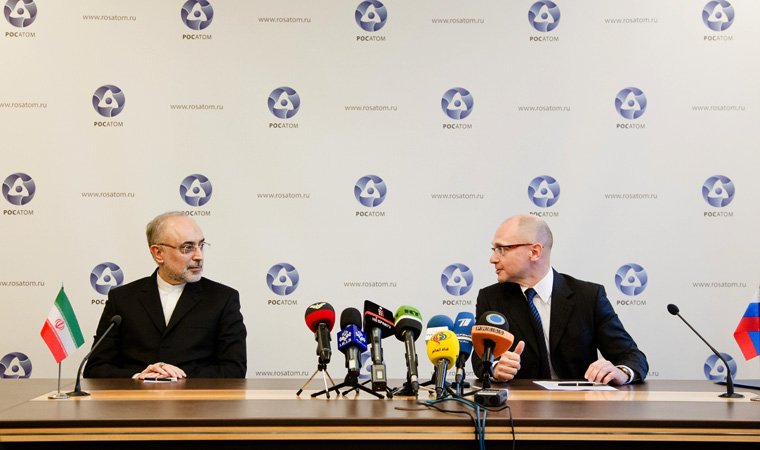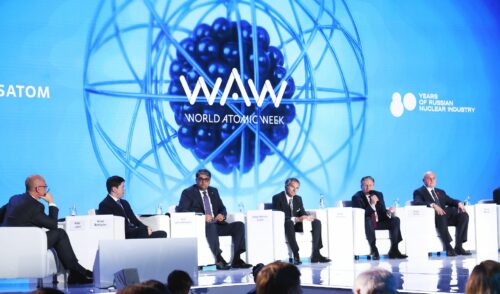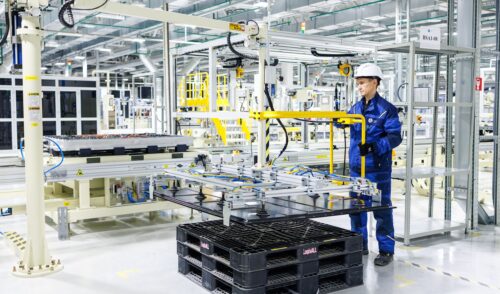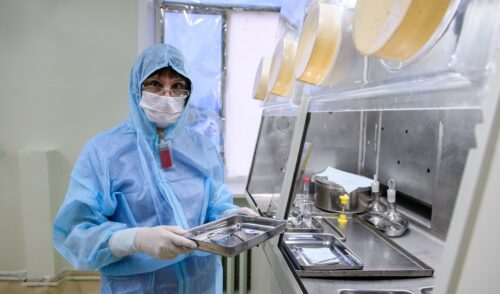
ROSATOM to Build Eight New Reactors in Iran
back to contentsThe wide-ranging agreement is set to transform the energy infrastructure and economy of Iran, which is around 90% dependent on domestically-produced oil and gas for its electricity. As many as nine million homes will be supplied with electricity by the expanded nuclear facilities, meeting around a third of the country’s power needs and enabling hydrocarbon reserves to be conserved for future export.
The cornerstone of the agreement is the further expansion of the Bushehr Nuclear Power Plant on the Persian Gulf, which ROSATOM completed in 2013. It is also the only civilian nuclear facility in the Middle East, and with a 1GWp VVER-1000 reactor, today supplies one million Iranian homes.
Under the terms of the agreement, ROSATOM will add two further VVER nuclear reactors at Bushehr in the short-term. The exact type of the reactors, as well as the financial terms and timetable will be agreed in the coming months. Two further reactors will be built at Bushehr in the medium-term. A new seawater desalination plant is under consideration that would be powered by the expanded power station.
In addition, the parties agreed to develop an entirely new nuclear power plant in the country with four VVER reactors. The location has yet to be announced by the Iranian nuclear authorities.
Sergey Kirienko, CEO of ROSATOM, said: “ROSATOM has seventy years’ experience of nuclear, and its technology and expertise will play an increasingly important role as nuclear grows its share of the energy mix, including in countries rich in hydrocarbons. Civilian nuclear is all about collaboration and we at ROSATOM are proud to have backed our Iranian partners in what has been a long and challenging initiative, but one that will deliver transformational social, economic and environmental benefits for the Islamic Republic and its citizens”.
Sergey Kirienko, CEO of ROSATOM:
We at ROSATOM are proud to have backed our Iranian partners in what has been a long and challenging initiative, but one that will deliver transformational social, economic and environmental benefits for the Islamic Republic and its citizens.
The Islamic Republic of Iran and ROSATOM also committed today to maximize domestic content and services in the construction, operation and decommissioning of nuclear power plants, in order to support the creation of new employment in Iran and bolster skills development. ROSATOM experts will support with education and training, both at universities and among public and private Iranian companies.
Fuel for the new reactors will be supplied by ROSATOM’s fuel subsidiary, TVEL, which will transport spent fuel back to Russia for reprocessing. A separate Memorandum of Understanding was signed that will see the parties work together on the feasibility of assembling fuel bundles in Iran, which will be economic once all eight new reactors are grid-connected, and reflects a global trend towards localised assembly in nuclear fuel supply. Under license from ROSATOM, production of fuel assemblies for VVER power stations began at the Yibin Nuclear Fuel Factory in China in 2010, and the company has agreements to develop similar
The fuel assembly project and all of the agreed projects will be overseen by the International Atomic Energy Agency (IAEA) and comply fully with the 1968 Treaty on the Non-Proliferation of Nuclear Weapons, as well as other treaties and international agreements that Russia and the Islamic Republic of Iran are party to, including any prospective agreement negotiated by the P5+1 group of countries.
Construction of new nuclear power units in Iran will not carry a threat for the nonproliferation regime, Ivan Nikitchuk, the First Vice Chairman of the State Duma’s Committee for Natural Resources, Environmental Management and Ecology, said. “The return of spent nuclear fuel is one of terms of signing the contract. Therefore, the danger of the use of uranium in Iran’s nuclear program is fully excluded,” he noted. “Iran is our long-standing neighbor, ally and partner. The signing of the documents on nuclear cooperation says once again other countries that Russia stays on the side of those who need its support, who are striving to progress, and wellbeing of their people,” he said.
Iran counts on certain localization and calls for local companies to join tenders in the frames of the project. ROSATOM does not oppose; the participation of Iranian specialists will make the NPP construction more economical, Sergey Kirienko is confident. As the cooperation develops, subcontractors will gain experience and necessary competences, so that the share of localization would even grow over time.




